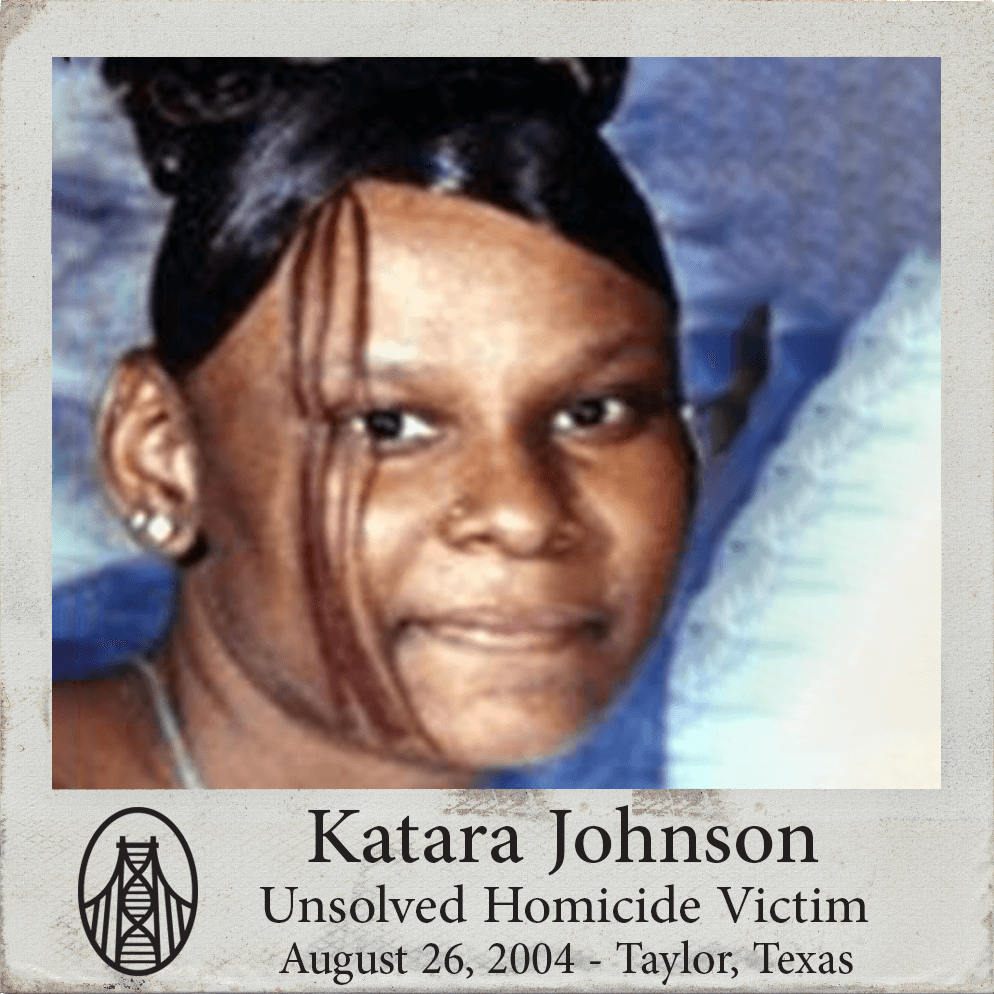February 17, 2020 | By Gabby Parzygnat
This story is part of a collaborative project between Project: Cold Case and a University of North Florida Journalism class. The student credited above wrote this story as a class project.
When Katara Johnson was a little girl, she loved riding bikes and playing with her brother and sister in their backyard. As she grew older, she fell in love with basketball. She became a talented player, eventually receiving a scholarship offer to play at the collegiate level.
Katara worked hard as the manager at her local Taco Bell in Taylor, Texas. She was popular around town and loved hanging out with her friends, according to her brother AJ and sister Shumeka. “She was well-liked in the community and was willing to help anyone that she could,” says Shumeka.
Katara, known to her family as Tara, was found in her home dead on Thursday, August 26, 2004. She was 21 years old, and her murder has never been solved.
After working the late shift the night before, Tara’s family began to worry after not hearing from her. The following morning, Tara’s grandmother and 6-year old nephew discovered the scene – Tara was lying on the floor, dead from a gunshot wound.
Her red Mitsubishi Lancer was stolen from the house but later located in the neighboring county.
Police later discovered that the back door of the house was unlocked and left ajar.
The lack of details and leads in this case has frustrated the family and police alike. Jeff Straub, former Police Chief, told the Taylor Press in 2017, “Law enforcement wants to catch those who do bad things, and it’s a passion that drives us.”
“To not be able to make a case is really frustrating,” Straub added.
Tara was born in Taylor, Texas, a small town in Williamson County, with a population of just over 15,000 residents. She lived in Taylor her entire life.
She was close to her family. She and her brother, AJ, were just one year apart. Many people assumed they were twins. “People would always tell you how nice she was,” AJ recalled.
Tara was athletic and played basketball but loved her family so much that she turned down a scholarship to stay home. She lived in her own house, which was walking distance from her grandmother and uncle. Tara had high ambitions and wanted to study kinesiology in college.
Losing a member of the family crushed the Johnsons, and the grief has been compounded by the weight of not knowing what happened. AJ was in the military when he got a phone call from his niece saying his older sister was dead. He was in disbelief, so he called his grandmother who confirmed the news. “A shock was sent through my body when she said that,” AJ said.
Learning about Tara’s death devastated the town of Taylor. “This was a shock to the community, to the whole town of Taylor,” Shumeka said.
Tara’s mother, Linda Johnson, died in 2012. She passed without knowing what happened to her daughter. Relatives maintain a Facebook memorial page for Tara and her mother for the community to visit, give their condolences, and send their love.
Anyone with information is encouraged to contact Taylor Police Sgt. Sam Brister at 512-352-5551, or Crime Stoppers at 1-800-253-7867.
Research and Impact
Project: Cold Case works with our families to ensure they recognize the impact of trauma and grief on their mental and physical health. At our monthly grief support meetings, some common themes shared among survivors include the impact a homicide has had on their lives and functioning.
To address these concerns, we have had invited a mental health provider to join our meetings and add insight to specific grief associated with their experience while offering tips to address and recognize the onset of being overwhelmed by grief.
The need for a surviving victim of violence to seek out mental care is vital in their healing process. But what of their physical health? While the social conversation has begun to shift with encouraging people to visit mental health professionals, survivors should also turn to their healthcare provider with their unique stressors attributed to grief.
The impact of acute trauma and stress on a person’s health has long been debated and studied, with results showing that the impact of a single trauma can have negative consequences on health.
Survivors dealing with the shock of a homicide should address their physical and mental health equally.
Please consider using the buttons below to share this case in hopes that someone, somewhere will come forward and give this victim and family the answers they need and justice they deserve.
If you have a loved one that is the victim of an unsolved homicide, please submit their case here for consideration in a future Cold Case Spotlight post.









